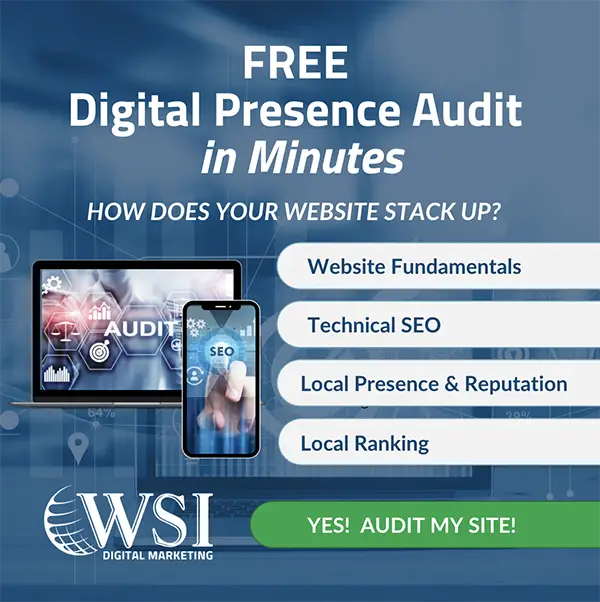In the world of digital marketing, where competitors are literally a click away, page load speed is what will make or break your website. Whether it’s improving SEO, increasing conversion rates, or enhancing user experience-a website’s speed optimization should be the top of a to-do list. A fast-loading website doesn’t just engage users; it also directly influences your technical SEO performance and bottom line.
In this article, we’ll explore how page load speed affects your SEO rankings, conversion rates, and overall website performance optimization, along with actionable tips to improve your site’s performance.
What Is Page Load Speed?
Page load speed refers to the time it takes for a web page to fully display its content in a user’s browser. This metric includes several components:
First-byte time: This is the time it takes for the server to respond and send the first byte of data.
First Contentful Paint: The time when the first visible content element shows up on the screen.
Largest Contentful Paint: It represents the time taken to load the largest visible content completely.
Each one of them has its influence on the user experience, technical SEO, and conversion rates.
How Page Load Speed Affects SEO
Search engines give preference to fast-loading websites because they improve the user experience. Google’s algorithm includes page speed as a ranking factor, especially with the introduction of Core Web Vitals that measure key aspects of web performance. Here’s how page load speed affects your SEO:
1. Higher Search Engine Rankings
Google wants to create the best experience for its users, which means it will rank those websites that are informative, relevant, and fast. Slow loading web pages increase bounce rates, which is a signal to search engines that users don’t find the content helpful. Websites loading quickly generally have higher SEO rankings, and for this reason, website performance optimization is crucial to visibility in search results.
2. Better Core Web Vitals Scores
Core Web Vitals include key metrics such as LCP, FID, and CLS. Poor LCP might lead to poor Core Web Vitals scores, thereby getting penalized over search rankings. Undoubtedly, the optimization of these metrics is one of the main components of technical SEO.
3. Lesser Bounce Rates
If it takes too much time to load a website, then users are more likely to leave before the loading is complete. The search engine algorithm perceives that it is not worth spending time on your site through its high bounce rate, thereby worsening your SEO performance.
How Page Load Speed Affects Conversions
Page load speed of your website doesn’t just affect how search engines rank you; it directly influences how users will interact with your content and take desired actions such as making purchases, submitting forms, or booking.
1. Faster Websites Increase Engagement
With a fast-loading page, users are very likely to view more pages and spend more time on your website, which may lead to better conversions. This is particularly important for digital marketing campaigns that drive paid traffic to landing pages.
2. Slow Pages Kill Conversions
It has been studied that a delay of only one second in page load time can reduce conversion rates by 7%. In e-commerce websites, where literally every second counts, slow page loading means abandoned carts and lost revenues.
3. Improved Mobile Experience
Since mobile users represent more than half of all web traffic, a fast mobile experience is about conversions. If your mobile speed is slow, that could discourage users from taking actions, especially when they are on-the-go.
Common Causes of Slow Page Load Speed
To understand how to improve your website performance optimization, it’s essential to identify common causes that contribute to the slowing down of the load speed:
Large Image and Media Files: High-resolution images and uncompressed videos can increase load times dramatically. Unoptimized Code: Too much extra CSS, JavaScript, and scripts not used in your pages can inflate your pages.
Slow Server Response Time: If your server takes too long to process requests, then the whole page load is delayed. Lack of Caching: Without caching, a user’s browser has to reload static elements like images and scripts every time they visit.
Too Many Third-Party Scripts: Social sharing buttons, ads, and analytics trackers are great, but add up and can really make a page load slow if not optimized properly.
No Content Delivery Network: Serving from one server instead of a CDN slows the load time in other regions of the country/world.
How to Improve Page Load Speed for Better SEO and Conversions
With page load speed already being one factor, let us delve into some actionable ways to improve performance on your website:
1. Optimize Images and Media
The images on the web pages usually occupy much space. One can compress their images with different tools such as TinyPNG or ShortPixel using modern formats including WebP. Besides that, lazy loading will load images on an ‘as-scroll’ basis.
Technical SEO Tip: Use descriptive alt text for images to improve both accessibility and SEO.
2. Minimize HTTP Requests
Each element on your page—images, scripts, stylesheets—requires an HTTP request. Minimizing these requests by combining CSS and JavaScript files or removing unnecessary elements can significantly reduce load times.
Digital Marketing Insight: Simplified pages with fewer elements often convert better in landing page campaigns.
3. Leverage Browser Caching
It makes your website cache all the static aspects so your browser can store that locally to make sure a return user does not re-download when revisiting.
Technical SEO tip: setup configuration of cache – to ensure such static assets get longer storage like logos and font files.
4. CDN implementation
A CDN distributes the static content of your website to servers at different locations on the planet. This allows users to load pages from a server that’s closer to their location. This reduces latency and improves global page load speeds.
Server Optimization Tip: Because CDNs not only improve speed but also reduce the strain on your primary server, a CDN is an important constituent of server optimization.
5. Reduce Third-Party Scripts
Third-party scripts, which include tracking codes, ads, and widgets, add a lot to your page load time. Regularly audit and remove all the scripts that are unnecessary or set them up to load asynchronously.
6. Compress Files
Using Gzip or Brotli compression can greatly decrease the size of your website’s files, hence making them faster to transfer and load.
Technical SEO Insight: With smaller-sized files, TTFB, or Time to First Byte-a very important metric regarding SEO performance-will be reduced.
7. Upgrade Your Hosting Plan
If your website sits on a shared server, upgrade to VPS or dedicated server. This would offer better server optimization, reducing the server response times, hence improving your website’s capacity to handle increased traffic.
The Role of Page Load Speed in Digital Marketing Campaigns
In digital marketing, page load can directly influence paid ad success, email marketing, and promotions on social media. Poorly loading landing pages can reduce the performance of your ads, raise your CPCs, and ultimately lower your ROI. For all landing pages, page speed optimization should be made a priority for marketing campaigns to ensure that the highest potential is met.
Final Thoughts
Page load speed is a crucial factor that affects both SEO and conversions. Not only does a slow website hurt your search engine rankings, but it also discourages users from taking action. Using website performance optimization techniques such as image compression, integration with CDN, caching, and server optimization, you will be able to create a faster and friendlier website for users that complements your digital marketing objectives.
The key takeaway is based on the very fact that every second counts to ensure a seamless online experience. Focus on technical SEO and enhancement of page load speed, and you will see better engagement, better SEO rankings, and higher conversions with all your marketing efforts.
Reach out if you have any questions.


